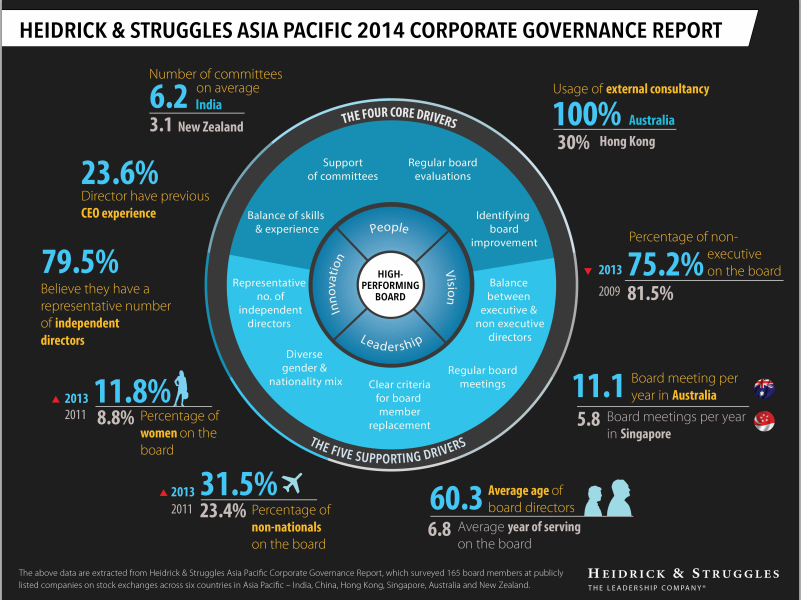
Singapore executives lack skill, knowledge and experience balance: survey
Respondents think the big bosses should suit up.
A survey by executive search firm Heidrick and Struggles indicated that board members generally felt that executive directors were underperforming in terms of skill, knowledge and experience balance, with Singapore having the largest performance gap. The demand for directors in the city-state presents a significant challenge to achieving the right balance.
In terms of committee support, Singapore also performs the worst among the 6 countries surveyed. The role of the committee has grown significantly in importance in recent years. Increasingly, committees are taking on significant decision-making tasks and are reporting their decisions back to the board.
Singapore respondents also felt that their boards were underperforming in general, and Heidrick and Struggles says that key areas of improvement in board effectiveness can be identified only when there is a comprehensive review of performance. Such reviews will also have an impact on succession planning, as well as clarity of the shared vision, and leadership of the board.
Singapore’s directors are satisfied with the frequency of meetings per year at 5.8 but it turns out that the city-state does not have enough meetings compared to its peers in the region like Australia at 11 meetings and New Zealand at 10.9. It would be difficult to deal with all regular and ad-hoc issues in 5 to 8 meetings a year, a survey by executive search firm Heidrick & Struggles says.
Little progress has been made in terms of gender diversity on boards, as the percentage has marginally increased to 6.3% from 6.1%.
Singapore also performed poorly in the following categories: identifying board improvement opportunities, balance between executive and non-executive directors, and clear criteria for board member replacement.
Here’s more from the survey:
Achieving the right balance between executive and non-executive directors can have a positive impact on leadership and team dynamics on the board. In other words, the better the perceived balance the better the board will perform. The focus of this driver on the leadership capability does suggest that the Chairman plays a major role in maximising board effectiveness, whatever the balance on the board.
In 2013, women made up 11.8% of Asia Pacific boards. This increased from 7.9% in 2009 and 8.8% in 2011. As a comparison, the figure across European boards was around 17% for 2013.
Some progress is indicated by the fact that Asia Pacific boards with no women represented has decreased from 39.6% in 2009 to 24.1% in 2013; compared with 12% in 2013 on European boards.
























 Advertise
Advertise










